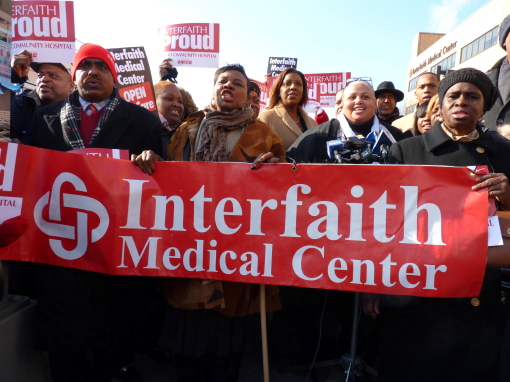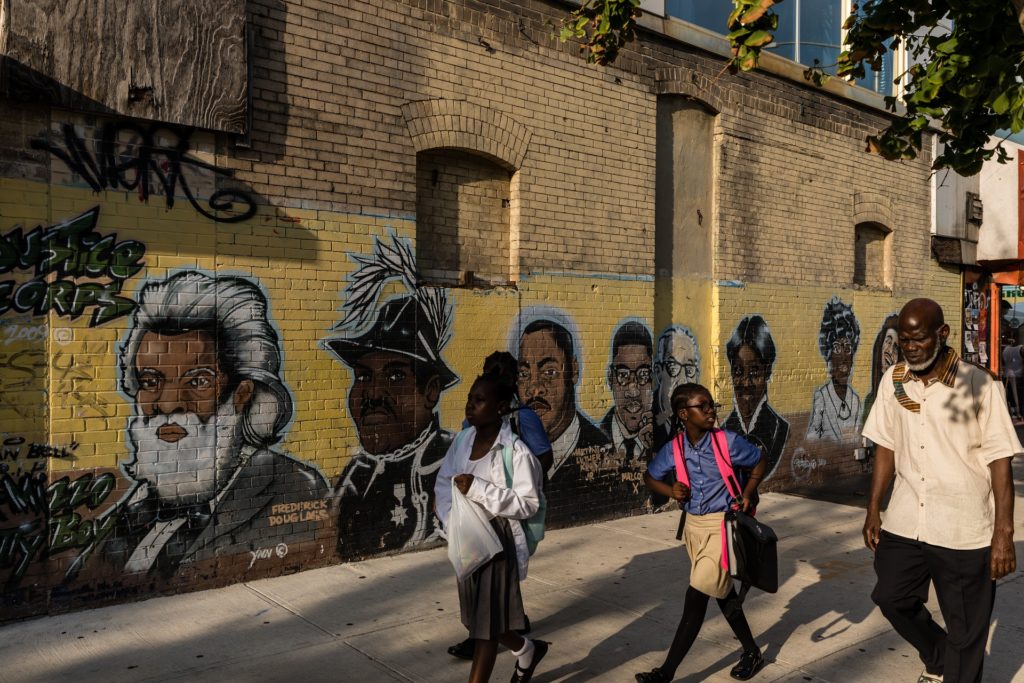Interfaith Hospital protest: ‘Show us the money!’
State wants Interfaith to give up clinics before getting promised millions

Advocates, elected officials and union members chanting “Show us the money!” gathered outside Interfaith Medical Center in Bedford-Stuyvesant on Sunday to protest the state’s demand that the ailing hospital turn over its clinics to Kingsborough Jewish Medical Center before the state releases $3.5 million in promised funding.
“We have a very precarious situation right now,” said Public Advocate Letitia James. “Interfaith will run out of money by the end of the week — they can’t make payroll past this pay period. New York state has refused to release $3.5 million.” Ms. James said that additional federal VAP funds (Vital Access Provider) were also being held up.
“They are holding the hospital hostage because the board responded to elected officials and the community and decided not to sell off its parts,” James said. “Now DASNY [Dormitory Authority of the State of New York] said it’s not releasing the money. That’s unacceptable.”
